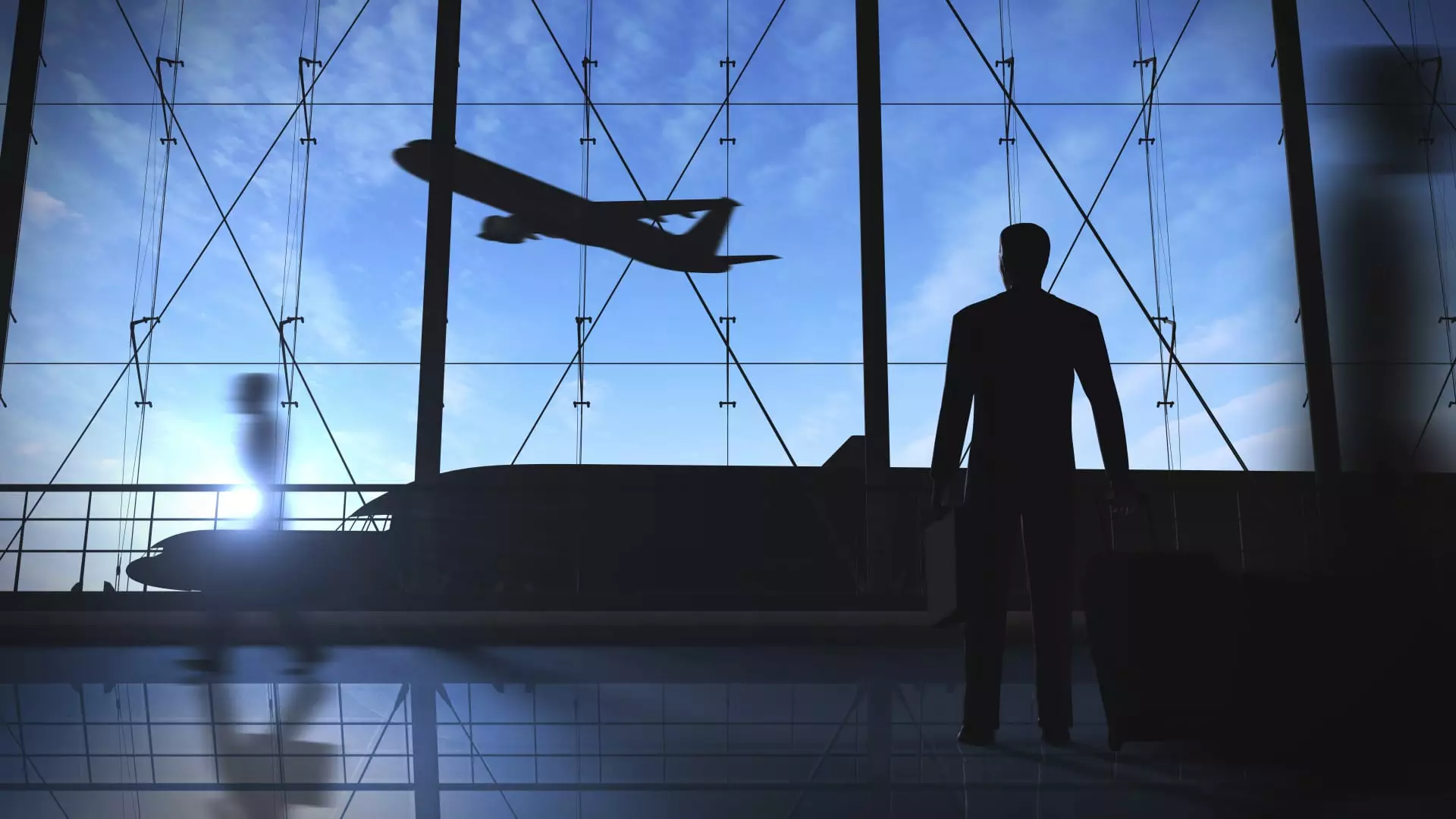In a landscape marked by economic volatility and geopolitical tensions, the resilience of corporate travel has become a matter of nuanced analysis and strategic recalibration. Despite the prevailing uncertainties, companies are not retreating from travel altogether. On the contrary, they appear to be adjusting their approaches — a subtle dance between prudence and necessity. This behavior signals a recognition that face-to-face interactions remain an indispensable element of modern business, even amid turbulence.
Corporate travel spending increased by 15% in the second quarter of 2025 compared to the previous year, according to Navan, a platform providing insights into business transactions backed by Nasdaq. Yet, beneath this seemingly optimistic growth, there is a sobering undercurrent: the overall sentiment within the industry is decidedly cautious. Companies are no longer blindly increasing expenses; instead, they are meticulously reallocating resources toward high-impact activities, reflecting an understanding that efficiency and purpose-driven travel are more critical than ever.
This measured approach speaks volumes about where corporate leaders stand today. Their focus has shifted from broad expenditure to strategic engagement. Rather than scaling back, businesses are prioritizing meaningful, one-on-one meetings, often over meals, with a noted 9.8% rise in personal meal expenses reflecting this trend. Simultaneously, spending on larger group events has declined, highlighting a preference for quality over quantity. The shifting patterns indicate that companies recognize the importance of maintaining vital relationships—client, partner, or team-based—while avoiding unnecessary extravagance that could be seen as wasteful in a tight economic environment.
Economic Pressures and Policy Uncertainty: From Growth to Restraint
The broader economic context also plays a pivotal role in tempering optimism within the corporate travel sector. The Global Business Travel Association (GBTA) forecasts a $1.57 trillion industry output for 2025, representing a modest 6.6% growth—less than half of the expected 10.4%. The slowdown is attributable to ongoing trade tensions, fluctuating tariff policies, and general economic uncertainty. These factors cast long shadows over the sector, fostering a climate where cautious optimism supplants exuberant expansion.
Moreover, sentiment surveys reveal a notable decline in positive outlooks among corporate leaders. The share of executives expressing confidence about business travel prospects plummeted from two-thirds in late 2024 to less than a third in mid-2025. This drop illustrates a pragmatic acknowledgment that economic headwinds—combined with policy unpredictability—limit aggressive expansion. Companies are aware that haphazard spending could jeopardize their bottom lines and reputation, prompting them to adopt a “wait-and-see” stance rather than reckless pursuit of growth.
This behavior reflects a broader ideological shift in corporate governance: prioritizing agility and resilience over short-term gains. As businesses navigate these uncertain waters, they focus on cost efficiency, compliance, and strategic alignment. According to airline CEOs, this recalibration is evident in the flat or declining trend in premium cabin bookings, which previously emphasized status and comfort. Now, cost-conscious companies are seeking avenues to optimize travel, such as multi-city bookings or consolidating meetings to fewer trips—a testament to a changed mindset that values flexibility and ROI.
Adapting to a New Normal: Efficiency, Purpose, and Reassurance
The evolution in travel behavior underscores a fundamental shift in how companies perceive the value of in-person interactions. Gone are the days of frivolous trips and excessive spending; instead, the focus has shifted toward purposeful travel with measurable outcomes. This renewed emphasis on efficiency aligns with broader corporate responsibility, as businesses seek to maximize productivity while minimizing unnecessary expenditures.
The decline in airfare prices—down 3.5% in June—coupled with a trend toward strategic trip planning, epitomizes this shift. Companies are booking fewer, but more targeted, journeys, often combining multiple meetings into single trips. Such practices not only conserve financial resources but also reflect an understanding of the environmental and social impacts of travel, aligning with a more sustainable business ethos.
Importantly, this pragmatic approach is not rooted in pessimism but in strategic realism. Airline executives like Delta’s Ed Bastian acknowledge that travel demand is stabilizing after a period of volatility. While initial setbacks attributed to policy fears and economic worries dampened confidence, there is now a cautious optimism that the industry can adapt and recover. The sentiment suggests that, despite short-term headwinds, the inherent importance of face-to-face engagement endures—though it must be pursued intelligently.
The ongoing emphasis on ROI and purpose-driven travel signifies a form of ideological maturity among corporate leaders. They recognize that in a connected world, strategic relationships often hinge on the quality of interactions rather than the quantity. As such, the focus is on making every trip count, a perspective that champions responsible corporate stewardship and long-term thinking.
The Great Balancing Act: Between Optimism and Realism
Global airline earnings and industry reports paint a picture of a sector in flux—a sector trying to find its footing amidst free trade policies, fluctuating demand, and economic uncertainty. For airlines like Delta and United, the narrative now is one of cautious optimism: demand is stabilizing, but growth remains muted. The double-digit recoveries some anticipated earlier in the year have been replaced by a more nuanced picture, emphasizing that the industry must adapt to the new normal of corporate travel.
From a policy perspective, this situation invites a center-leaning liberal critique: the importance of balancing economic openness with strategic safeguards. The current environment underscores the need for policies that foster stability and resilience without stifling growth. Businesses, while cautious, continue to invest in relationship-building, realizing that disconnecting entirely from travel would risk damaging long-term competitiveness.
Ultimately, this complex landscape demands a nuanced political and economic approach—one that recognizes the enduring importance of in-person engagement but advocates for smarter, more responsible spending. Governments and industry stakeholders should work together to create conditions that facilitate sustainable growth, ensuring businesses can thrive without succumbing to reckless excess or debilitating constraints. In this balancing act lies not just the future of corporate travel but the broader health of the interconnected global economy.


Leave a Reply